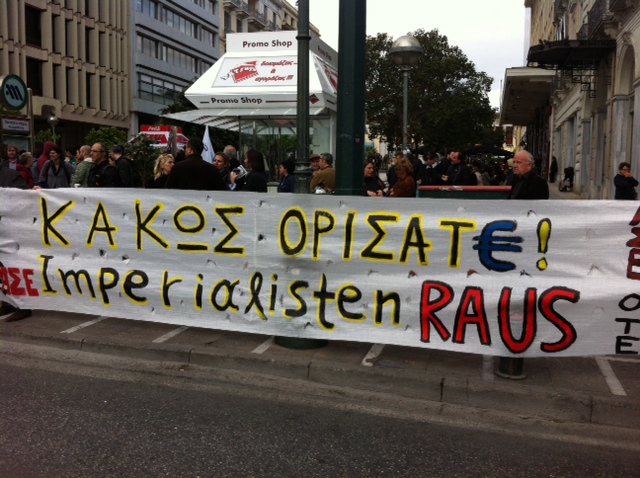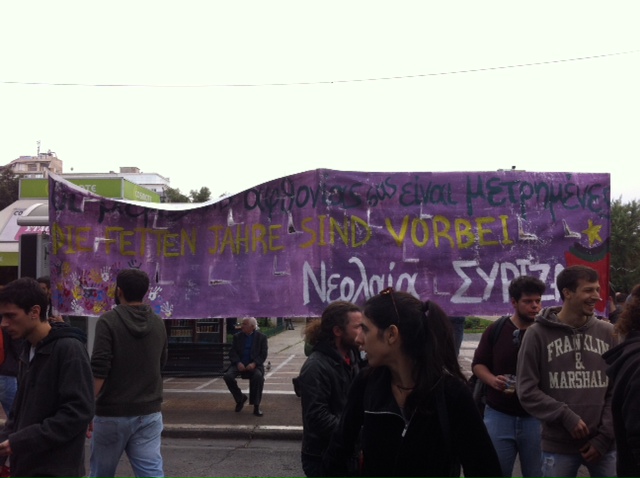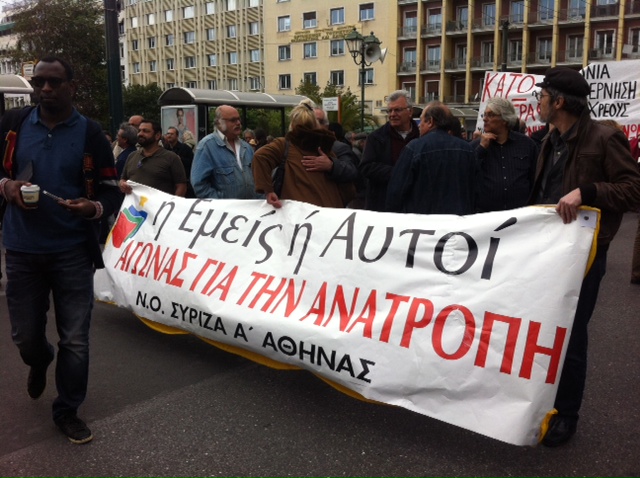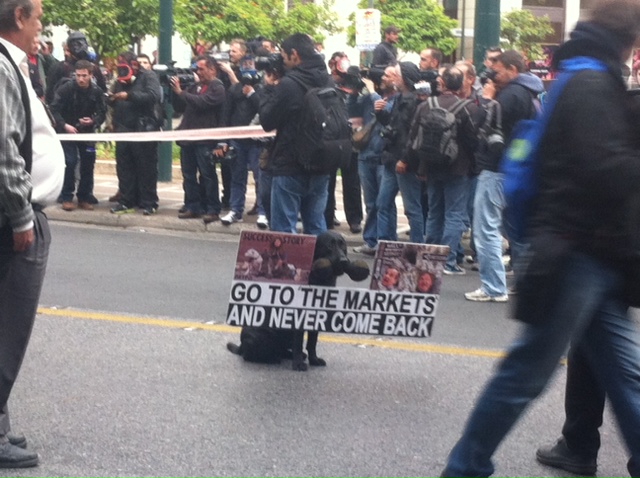Title photo: ethnos.gr
Anastasia Balezdrova
One working day was the length of the visit of German Chancellor Angela Merkel to Athens, which political analysts define as electoral support for the government of Antonis Samaras.
Immediately after the arrival of Angela Merkel in Greece the chancellor office in Berlin issued a message emphasizing that Germany will continue supporting the reforms in Greece. "The Chancellor is visiting Athens to express her support for the government actions to reform the Greek economy, as, in the meantime, Greece has also returned to the international financial markets," reads the text.
Antonis Samaras met Angela Merkel at the airport and then they left in the same car to the Hilton Hotel in the centre of Athens, where they met with young entrepreneurs and representatives of major Greek companies.
During the meetings, the German chancellor called for more transparency in the financing of the Greek companies so that it can be distributed among as many contractors as possible rather than being concentrated in the hands of the same companies. In addition Merkel said that German companies are also faced with different problems. Antonis Samaras in turn pledged to support start-up companies because "they will bring extrovertness and innovation to the economy" and urged the members of the supervisory Troika not to react negatively regarding the allocation of part of the primary surplus for 2013 to disadvantaged citizens.
An interesting point during the forum of young entrepreneurs was the photo that Nikos Moraitakis, one of the founders of the start-up Workable company, posted on the social network Instagram with the following comment, "Look who's sitting next to me."

After the forum, there was an official meeting between the two leaders in the Prime Minister's Maximou residence. Angela Merkel reiterated during the ensuing press conference that her country supports the efforts of Athens to bring the Greek economy back onto its feet. Asked about the probability of a third bailout for Greece being approved, she pointed out that it is too early to speak about this and that Euro zone finance ministers will discuss the issue at a certain point.

None of the Greek and German journalists present at the press conference raised before Angela Merkel the issue of the German war reparations that is widely discussed in the Greek public space. It is worth noting that it was put quite openly during the visit of Germany’s President Joachim Gauck to Athens in early March.
More than 6,000 police officers, members of the riot and special forces, and of the anti-terrorism service strictly guarded the centre of Athens throughout the day whereas the underground stations from Katehaki Avenue to Syntagma and the Acropolis were closed for most of the day.
Late in the afternoon the opposition and trade unions held a protest against the visit of the German Chancellor. Despite the calls of SYRIZA to all citizens of Athens to go to the city centre to protest against the visit of Angela Merkel, the protest did not involve more than 3,000 people. They gathered at Klafthmonos Square and then set off for a procession, which lasted about 100 metres, as the building of the old parliament at Stadiou Street was blocked by two police buses.


The procession passed quietly and the protest ended at around 7:00 pm, the most violent reactions being the throwing of several balloons filled with coloured dyes at the police by some protesters while it was pouring over Athens.
Unlike the previous visit of the German Chancellor, this time there were no participants dressed as soldiers, in Nazi uniforms, nor pictures of Angela Merkel in similar clothing. The imagination and creativity of the protesters were limited to loud slogans against the Greek government. The protest poster of communications company OTE, whose main owner is Deutsche Telekom, was written in Greek and German and it read, "You are not welcome imperialists. Go away."

"Your days of plenty are numbered", members of the youth organization of SYRIZA had written in Greek and German.

Other slogans of the main opposition party read, "No sacrifices for the debt and the euro" and "Us or them. Fight for a radical change."


The black dog trained by his owner to carry protest posters was there too, carrying this time a poster with pictures of Antonis Samaras and Evangelos Venizelos, reading, "Go the markets and never come back."

The protest was covered by several German media. Angela Merkel herself did not fail to show her dissatisfaction with the negative reactions in Greece. "I do not know if your friends will allow you to be in their company tonight after having talked to the Chancellor," she told the forum of young entrepreneurs.
The visit ended with a dinner at a restaurant in the central Plaka district but its name was not announced for security reasons.